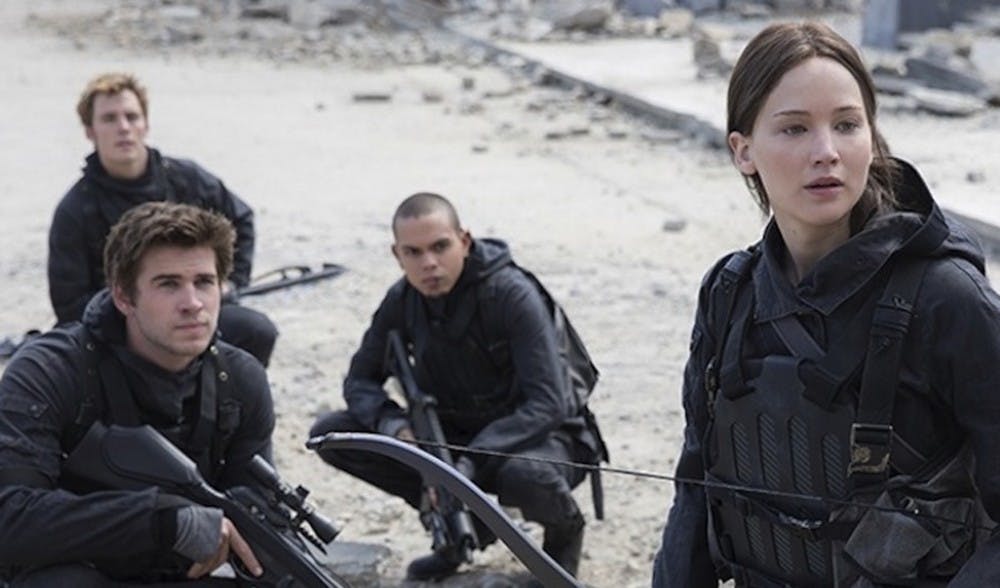Katniss Everdeen has to play a game in her head in order fend off her nightmares. She makes a list of all the good things she’s seen people do and recites it over and over again.
If I were making a similar list about “The Hunger Games: Mockingjay, Part 2,” it would read something like this:
Jennifer Lawrence. Jennifer Lawrence. Jennifer Lawrence.
Whether it be shooting arrows or shedding tears, Lawrence is the oomph in what is an otherwise level conclusion to the beloved trilogy.
The film follows exactly as promised. It is a satisfactory end to the three-year, four-installment franchise that veers very little from Collins’ original storyline.
If you did right by yourself and read the Hunger Games series before seeing the films, what happens is pretty much exactly what you expect.
You see on screen the visual manifestation of the words you hungrily devoured, and it’s fine. It’s good even. Like drinking a virgin daiquiri or receiving a postcard, it’s the watered down, less dimensional version of the thing you love, but it’s still pleasant on the pallet.
So the question is, what does “Mockingjay, Part 2” offer that “Mockingjay” did not? And the answer is, unequivocally, Lawrence.
It’s always been about Lawrence, just as the Hunger Games have always been about Katniss.
Of course, both the heroines were aided by their supporting cast. It’s fun to see Peeta, Finnick, Haymitch and Plutarch — RIP Phillip Seymour Hoffman — portrayed by a star-studded cast.
However, it’s only Lawrence who is compelling. Only Lawrence who can provide us with the raw spectacle of a cry so ugly drool falls from her mouth.
Seriously, this review could easily become a 500-word manifesto on the refreshing and long-awaited realism of a Hollywood lead actually looking the way you look when you cry in your bedroom at 2 a.m.
It’s gritty moments like this one that are lost in translation from Collins’ book. Even split into two movies, the raw and tortured moments have to be rushed or removed in order to advance the plot.
And yet, running from blood-thirsty mutts, vaporizing skylights, armed peace keepers and crumbling floors, Katniss somehow has time to arouse a stuporous Peeta with a kiss and the line, “Stay with me.”
“Always.”
Gag.
Of course, as a multi-million dollar blockbuster, the movie falls victim to some of the formulaic structural pitfalls of modern cinema, namely prosaic dialogue and an overbearing love triangle — thanks, Stephenie Meyer. But it’s hard to blame any thematic pitfalls, such as the fruitlessness of the film’s central mission, on director Francis Lawrence, because Collins just wrote it that way.
For all of its shortcomings, it is an entertaining film with suspense, twist, thought-provoking themes about cyclical warfare and, of course, J-Law.
And — compared to much of the rest of the Hollywood trash heap advertised in the previews — there are far worse films to see.




